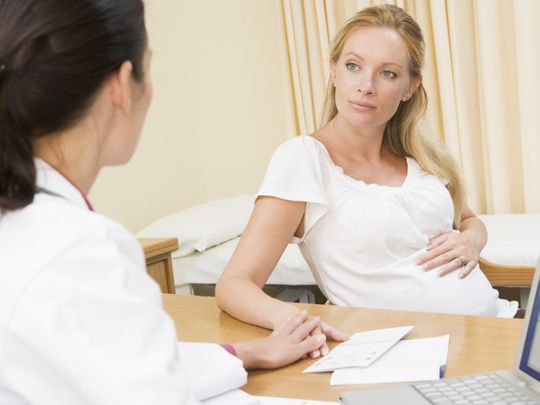
Covid-19 infection during pregnancy has been a challenge for all obstetricians in terms of management, complications and mode of delivery, says Dr Sausan Abdul Rahman, Consultant — Obstetrics and Gynaecology at Burjeel Hospital. GN Focus talks to Dr Sausan to learn more.
What’s the impact of Covid-19 on pregnant women and their babies?
Current evidence suggests that if you develop Covid-19 during pregnancy it is unlikely to cause problems for you or your unborn baby. There is no increase in the risk of miscarriage if you get the infection in the early stages of pregnancy. Transmission of coronavirus from a woman to her baby during pregnancy or childbirth, which is known as vertical transmission, seems to be uncommon. Whether a newborn gets Covid-19 or not doesn’t depend on the mode of birth, feeding choice or the fact that the mother and baby stay together. Newborns developing Covid-19 very soon after birth recover fast.
Premature birth is often cited as a major risk for Covid-infected pregnant women. Can you shed some light on it?
Studies have shown that pregnant women who become very ill due to Covid-19 face a two-to-three times increased risk of giving birth prematurely. In most cases, this was because it was recommended that their babies were born early for the benefit of the women to enable them to recover. Babies born before 37 weeks of gestation are vulnerable to problems associated with being born premature. The earlier in the pregnancy the baby is born, the more vulnerable they are and are more likely to be admitted to the NICU. There was no increased risk of stillbirth or infant death for babies born to women who had Covid-19.

How does Covid-19 affect pregnant women who have diabetes?
Pregnant women with pre-existing diabetes and gestational diabetes form a special group who need frequent and strict monitoring. People with diabetes have defects in innate and adaptive immunity that increases their susceptibility to infection, and viral clearance is also reduced. Management of diabetes in pregnancy should follow established protocols. Tight glycaemic control is an absolute prerequisite to ensure healthy outcomes. Telemedicine facilities offer a good platform for the remote monitoring of diabetes management. Teleconsultations and telemedicine are available in the UAE to minimise hospital visits and reduce the risk of cross infection.
Can pregnant women take Covid vaccinations?
Covid-19 vaccine is now being offered to pregnant women in the UAE along with the rest of the population. In some countries Covid-19 vaccine is only given to a specific group of pregnant women — those with acute medical conditions and are at risk of developing severe illness if they get Covid-19; pregnant healthcare workers; women with gestational or pre-existing diabetes complicating pregnancy; pregnant women with body mass index (BMI) over 40; and older age groups of pregnant women.
Amid the pandemic, how should pregnant women take special care of themselves?
Our advice to all pregnant women during the pandemic is to wear masks strictly at all times during their visits to the hospital and follow social distancing. Keep mobile and well hydrated to reduce the risk of blood clots since pregnancy is a hypercoagulable state. Stay active with regular exercise, maintain a healthy balanced diet, take folic acid and vitamin D supplementation. Attend all pregnancy scans and antenatal appointments unless advised otherwise. And contact your maternity team if you have concerns about your or your unborn baby’s well-being.
Call 80055 or visit Burjeel.com for details













